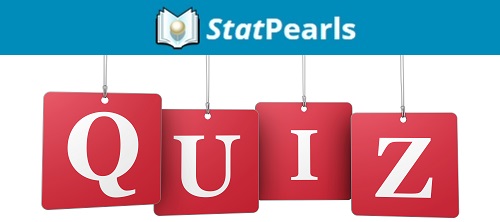StatPearls
StatPearls Question of the Week – #10
There is some experimental work using chimeric antigen receptor engineered T cells (CAR-T cells) for therapy to target cancer stem cells. What CD receptor...
StatPearls Question of the Week – #9
What are present hurdles faced with chimeric antigen receptor-engineered T cells (CAR-T cells) therapy?
A. Antigen loss relapse
B. On target/off tumor toxicity
C. Less efficacy...
StatPearls Question of the Week – #8
Which condition has not been shown to respond to chimeric antigen receptor-engineered T cells (CAR-T cells) therapy?
A. Non-Hodgkin lymphoma
B. Acute lymphoblastic leukemia
C. Chronic...
StatPearls Question of the Week – #7
So far in the early clinical trials, chimeric antigen receptor-engineered T cells (CAR-T cells) have targeted which receptor in the treatment of acute lymphoblastic...
StatPearls Question of the Week – #6
To date in clinical trials, chimeric antigen receptor T (CAR-T) cell therapy has been used to treat which type of cancer?
A. Sezary syndrome
B....
StatPearls Question of the Week – #5
In the recent clinical trials involving Chimeric Antigen Receptor T cell therapy (CAR-T), which complication led to a halt in the studies?
A. Myocardial...
StatPearls Question of the Week – #4
On which malignancies is Chimeric Antigen Receptor T-cell therapy (CAR-T) being tested?
A. Solid tumors
B. Hematological malignancies
C. Sarcomas
D. Skin cancers
Click...
StatPearls Question of the Week – #3
From the early clinical trials involving chimeric antigen receptor T cell therapy (CAR-T), cytokine release syndrome has been a major problem. To block the...
StatPearls Question of the Week #2
What is the most common adverse effect of chimeric antigen receptor therapy (CAR-T)?
A. Reactivation of tuberculosis
B. Stevens-Johnson syndrome
C. Cytokine release...
StatPearls Question of the Week #1
Based on early clinical trial data, chimeric antigen receptor therapy (CAR-T) has been most successful in which population?
A. Children with acute lymphocytic leukemia
B....


